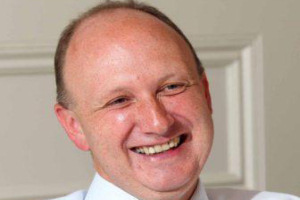
“This is one of the biggest threats facing universities in the coming years,” said Professor Colin Bailey, deputy president of the University of Manchester.
“We currently attract significant funding and investment from Europe as well as the European Research Council and it would be hugely damaging if this was withdrawn.”
For UK higher education institutions, EU funding provides an additional 15% on top of the UK government’s own research budget. In the last few years, the European Commission has provided more than nine hundred million pounds for research projects.
Jeremy Lindley, director of finance at the University of York agreed with Professor Bailey. “It’s not just about funding though,” he explained. “We also attract thousands of foreign students. Without them we’d lose revenue but our UK students would also lose out on a cosmopolitan education.”
Academics and business folk with an interest in the North’s substantial HE sector from across the North of England gathered on Wednesday for the first ever Educate North Conference and Awards ceremony.
Among the numerous facts and figures presented on the day, it was revealed that more than 160,000 people are directly employed by universities across the North of England with an expenditure of more than £6 billion. There are also tens of thousands of overseas students studying in the North of England generating significant additional income to the Northern economy. For info purposes, Sheffield is home to the largest percentage of overseas students in the North and Lancashire the lowest.
 Colin Bailey
Colin Bailey
“This is also a big issue facing the university sector,” explained Professor Colin Bailey. “The Government is currently reviewing its policy on immigration but for universities to survive we rely on the income from overseas students. At Manchester alone we have more than ten thousand students from outside the EU. They’re important to us not only for short-term income but we’d also lose out on developing long-term business relationships.”
American universities are beginning to recognise the significant financial income from encouraging overseas students and there is concern in the UK that potential students will be poached.
“Not only that but Swedish universities for example are offering free education with lessons taught in English,” said Jeremy Lindley from the University of York. “And they’re not on their own, other universities in Germany and Maastricht are offering the same and are no doubt hoping to attract UK students. We need to compete just as hard for British students as we do for those from elsewhere in the world.”
At the University of York twenty percent of students are from outside the UK and twenty percent of staff are from other countries. At the University of Manchester there are one hundred and eighty countries represented and more than two hundred languages spoken.
“Our sector is in a period of revolutionary change,” said Mr Lindley. “We’re becoming increasingly commercialised and we’re demand led rather than supply led but we’re all worried about Government policy and the impact this could have on the future.”
One hugely encouraging stat delivered by Caroline Cowburn of Hefce suggests that historically negative perceptions about ‘its’ grim up North’ and a perceived (or actual) lack of good prospects for graduates is changing as she revealed that 71% of graduates from Manchester’s Universities remain in the city six months (implying work) after graduation, a percentage figure which is only equalled in the UK by London.
Cowburn also added that the current value of HE exports for the UK economy is £12bn and is forecast to grow to £30bn over the coming decade.
The inaugural conference and awards ceremony attracted delegates from across the north from Newcastle and Hull to Liverpool and Chester. It was led by academic chairman Professor Sir Cary Cooper CBE. As well as addresses by academics, the conference also heard from Mark Payton, one of the UK’s leading private equity specialists focused on IP and IP spin-outs, the Mayor of Salford, Andrew Bush, the director of Higher Education at professional services firm KPMG, the Chinese Consul General and Sir Richard Leese, the Leader of Manchester City Council.
“Our northern universities play a significant role in contributing to the economic success of this region. They employ a staggering number of people and attract business and investment,” said host and founder Rob McLoughlin OBE. “Their importance cannot be underestimated and we wanted to give the universities a forum to share the amazing things they are doing and acknowledge the positive impact they have on students, commerce, industry and the wider community.”
Educate North was supported by:
 John Kennedy
John Kennedy
Liverpool Chamber of Commerce and the prominent businessman John Kennedy.









